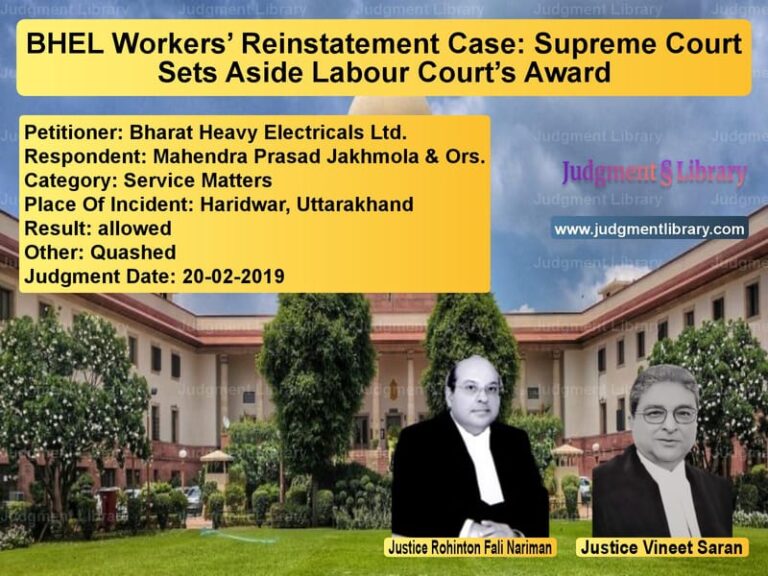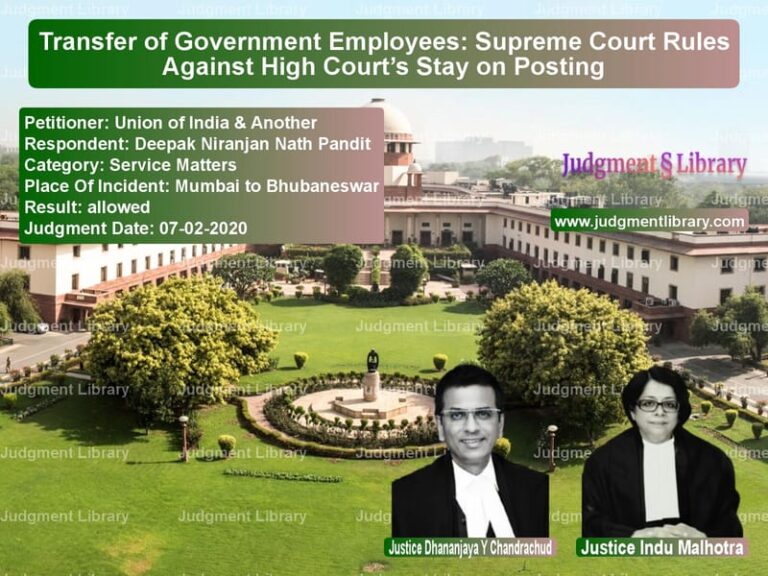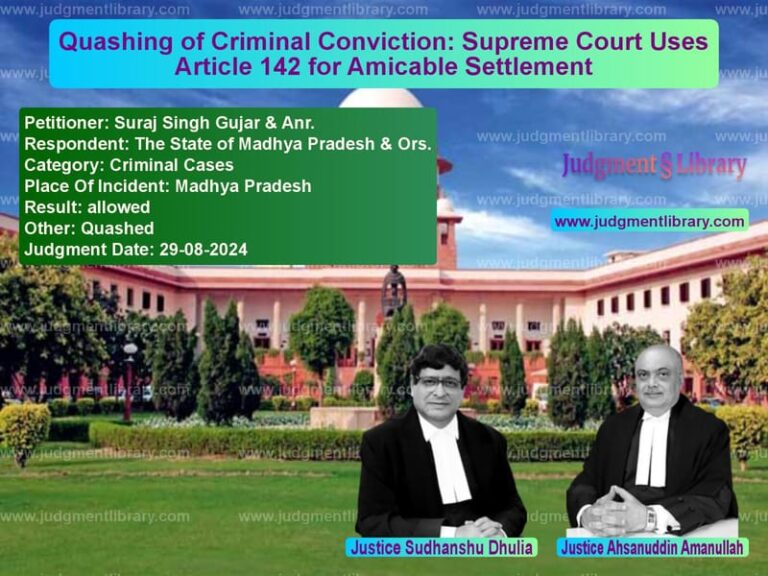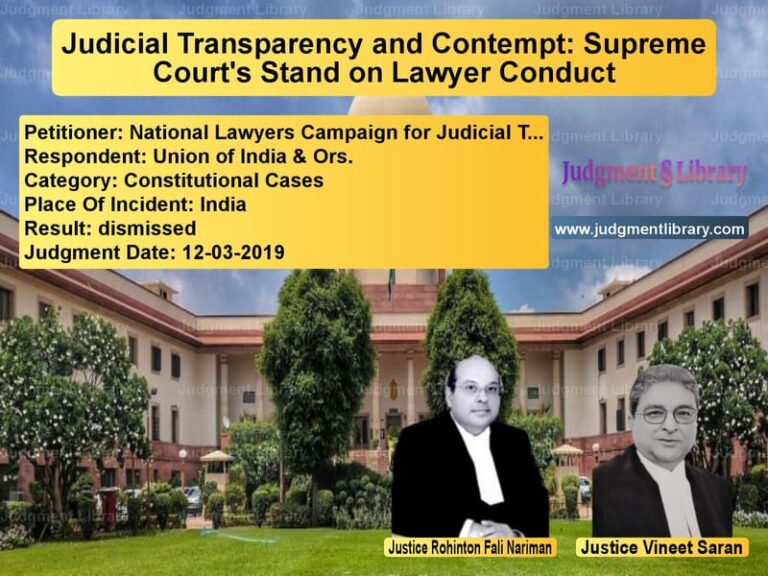High Court’s Duty to Assign Reasons: Supreme Court Sets Aside Summary Dismissal
The Supreme Court of India recently delivered a crucial judgment in the case of Hasmat Ali v. Amina Bibi & Ors., shedding light on the procedural importance of reasoned orders in appellate decisions. The judgment, delivered by a bench comprising S. Abdul Nazeer and Krishna Murari, emphasized that a High Court cannot dismiss a second appeal in limine without assigning reasons.
The case originated from a civil suit where the appellant, Hasmat Ali, was directed to vacate a shop he was occupying. The trial court ruled in favor of the plaintiff, and this decision was upheld by both the Additional District Judge and the Orissa High Court. However, the Supreme Court found procedural lapses in the High Court’s handling of the second appeal.
Background of the Case
The dispute began with a civil suit filed by Md. Mukim (since deceased) seeking a declaration that Hasmat Ali was a tenant only till March 31, 2003, and demanded his eviction. After a contested trial, the Civil Judge, Senior Division, Rourkela, decreed partial relief, directing Hasmat Ali to vacate the property. The defendant’s appeals before the Additional District Judge and the Orissa High Court were dismissed.
Supreme Court’s Observations
The Supreme Court analyzed the provisions of Section 100 of the Civil Procedure Code (CPC), which governs second appeals. It noted:
- Under Section 100(4) CPC, a second appeal must be admitted only if the High Court is satisfied that it involves a substantial question of law.
- The High Court must explicitly formulate such a question before proceeding with the appeal.
- Under Section 100(5) CPC, the High Court must ensure that the appeal is heard on the formulated question.
- When dismissing an appeal, the High Court is required to assign reasons to justify its conclusion.
However, in this case, the High Court dismissed the second appeal without recording any reason. The Supreme Court found this to be a procedural lapse, as the absence of reasons deprived the litigant of an opportunity to understand the decision.
Judicial Precedents Cited
The Court referred to the landmark case of Surat Singh v. Siri Bhagwan (2018) 4 SCC 562, where it was held that a High Court must assign reasons when dismissing a second appeal without admission. It stated:
“The scheme of Section 100 is that once the High Court is satisfied that the appeal involves a substantial question of law, such question shall have to be framed under sub-section (4) of Section 100. If the High Court is satisfied after hearing the appellant at the time of admission that the appeal does not involve any substantial question of law, then such appeal is liable to be dismissed in limine without any notice to the respondents after recording a finding in the dismissal order.”
Verdict and Directions
Holding that the High Court had failed to discharge its duty properly, the Supreme Court allowed the appeal, set aside the High Court’s dismissal order, and remitted the matter back for fresh consideration with the direction to assign reasons.
Implications of the Judgment
This ruling reinforces judicial discipline in handling second appeals. It underscores the necessity for reasoned orders to uphold transparency, procedural fairness, and the litigant’s right to a well-founded decision.
The judgment serves as a crucial precedent ensuring that appellate courts do not summarily reject cases without due consideration and recorded justifications.
Petitioner Name: Hasmat Ali.Respondent Name: Amina Bibi & Ors..Judgment By: Justice S. Abdul Nazeer, Justice Krishna Murari.Place Of Incident: Rourkela, Orissa.Judgment Date: 29-11-2021.
Don’t miss out on the full details! Download the complete judgment in PDF format below and gain valuable insights instantly!
Download Judgment: hasmat-ali-vs-amina-bibi-&-ors.-supreme-court-of-india-judgment-dated-29-11-2021.pdf
Directly Download Judgment: Directly download this Judgment
See all petitions in Landlord-Tenant Disputes
See all petitions in Damages and Compensation
See all petitions in Specific Performance
See all petitions in Judgment by S. Abdul Nazeer
See all petitions in Judgment by Krishna Murari
See all petitions in allowed
See all petitions in Remanded
See all petitions in supreme court of India judgments November 2021
See all petitions in 2021 judgments
See all posts in Civil Cases Category
See all allowed petitions in Civil Cases Category
See all Dismissed petitions in Civil Cases Category
See all partially allowed petitions in Civil Cases Category







